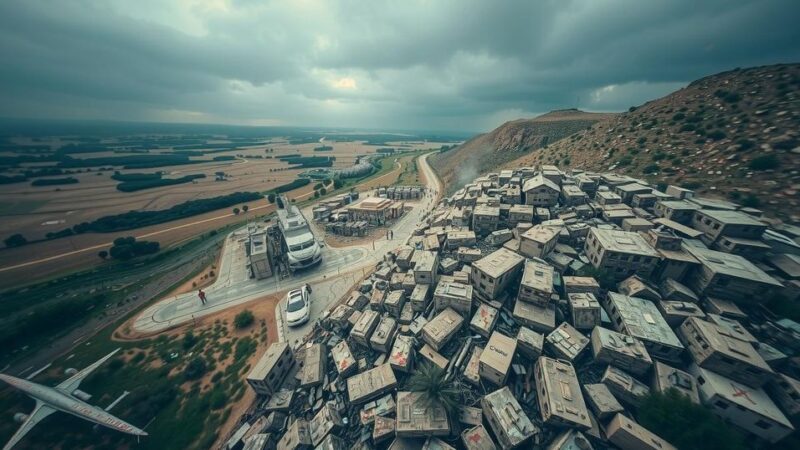At COP29, pressure mounts on wealthy nations to commit nearly $1 trillion annually for developing countries’ climate assistance as negotiations remain stalled. Rich nations hesitate to disclose specific contributions amidst significant financial demands from poorer nations. Discussions are complicated by calls for emerging economies like China to also contribute. A sense of urgency persists with limited time left for negotiations, and hope for an ambitious agreement wanes.
Pressure is intensifying on affluent nations to pledge nearly $1 trillion annually to assist developing countries as negotiations at the COP29 climate talks in Azerbaijan approach their conclusion. With just two days left, wealthy nations have refrained from disclosing their financial commitments to support the developing world, which contributes insignificantly to global warming yet faces dire consequences from climate change. Developing nations are advocating for an increase in the previously agreed annual commitment of $100 billion, underscoring the urgency for financial support. EU Climate Commissioner Wopke Hoekstra acknowledged the challenges ahead, stating, “This will be a very steep climb.” The urgency is reflected in the significant amounts required by developing nations, estimated to reach $1 trillion annually by 2030, and escalate to $1.3 trillion by 2035. However, richer countries express concerns over their financial capabilities amidst domestic economic pressures. They contend that without a clear understanding of what is being negotiated, they cannot make specific financial commitments. Australian Climate Minister Chris Bowen mentioned that he had encountered various figures sought from wealthy nations, ranging from $440 billion to $900 billion, but emphasized that these figures did not originate from the developed countries themselves. Discussions are further complicated by calls for economically advanced developing nations such as China and Saudi Arabia to contribute. Danish Climate Minister Lars Aagaard called for equity in contributions, stating, “There are countries out in the world that have an income level that is close to or above the poorest European countries, and we think that it’s only fair to ask them to contribute.” As the conference progresses, a sense of urgency is building among participants to finalize arrangements, with hope diminishing for achieving ambitious agreements. Negotiators from Bolivia expressed that a proposed figure of $200 billion was unacceptable, reflecting the discontent among developing nations regarding inadequate financial proposals. COP29 hosts have implored all parties to accelerate negotiations and seek meaningful outcomes from the conference.
The COP29 climate talks take place in a context of escalating urgency regarding climate finance. Wealthy nations have historically contributed to climate change, yet developing countries bear the brunt of its consequences despite their minimal contribution to global emissions. The discussions at COP29 revolve around increasing financial support for developing nations to address climate challenges, with a pressing need to formulate a concrete financial package in light of the growing impacts of climate change on vulnerable populations.
In summary, significant pressure is mounting on wealthy nations to raise their financial contributions to assist developing countries in combating the impacts of climate change. The current negotiations at COP29 reveal a complex web of demands and conditions that complicate consensus among nations. With looming deadlines and diverging objectives, the path forward remains fraught with challenges, underscoring the urgent need for collaborative efforts to secure adequate climate financing.
Original Source: www.france24.com



